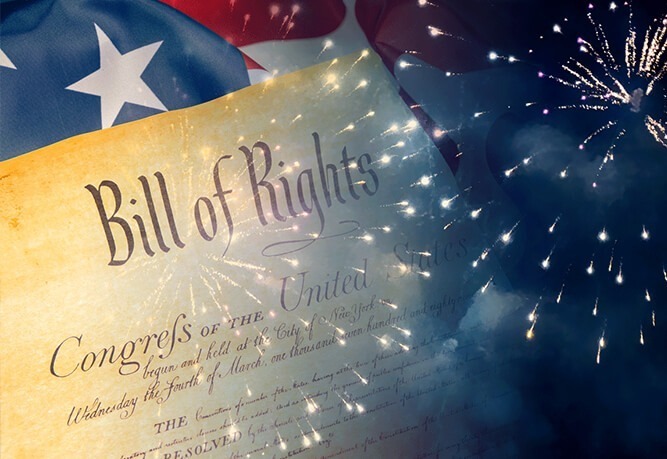As we approach celebrating Independence Day, we do so at a unique time of heightened attention and unease given both the pandemic and civil unrest happening across the nation. Now more than ever it’s important we remember the fundamental tenets upon which our nation was founded and the progress we’ve made to get here.
During the 1960s, the date of July 2 marked two pivotal milestones in our nation’s history. First, on this date in 1964 the Civil Rights Act was enacted. This act was a landmark civil rights and labor law prohibiting discrimination in public places, providing for the integration of schools and other public facilities, and made employment discrimination illegal. It was the most sweeping civil rights legislation since Reconstruction and is considered one of the crowning legislative achievements of the civil rights movement. “Let this session of Congress be known as the session which did more for civil rights than the last hundred sessions combined,” President Johnson said in his first State of the Union address.
One year later, on July 2, 1965, Congress founded the U.S. Equal Employment Opportunity Commission (EEOC), by Title VII of the Civil Rights Act of 1964, to “ensure equality of opportunity by vigorously enforcing federal legislation prohibiting discrimination in employment” — particularly discrimination on the basis of religion, race, sex, color, national origin, age, or disability. With the aim to eliminate bias and inequality in America’s workplaces, the EEOC enforces federal anti-discrimination statutes, and provides oversight of all federal equal opportunity regulations, policies, and practices.
These two landmark events helped define pivotal guideposts for hiring practices, to protect employees from any form of hiring bias and discrimination throughout the process. Eliminating hiring bias results in a more diverse workforce, representing many different perspectives and ideas — broadening a company’s viewpoints and embracing innovation and change.
At Accurate, we proudly champion non-discriminatory hiring practices and uphold the laws and safeguards that have been put in place to protect job candidates for the past 50+ years. Data-driven background checks are an essential piece of the hiring process and reinforce Accurate’s commitment to removing bias during the hiring process. Our data-driven background screening process is designed to eliminate bias by allowing applicants to dispute inaccurate or false information in reports. Ban the Box, which prohibits employers from inquiring about criminal backgrounds at the early stages of the hiring process, and other regulations designed to give all applicants a fair chance, have been adopted by many city, county and state governments.
This upcoming Independence Day will be different than any other. It’s important that we take time to reflect on the progress we’ve already made as a nation, and all of the crucial progress still needed to move us forward today and in the days to come.



